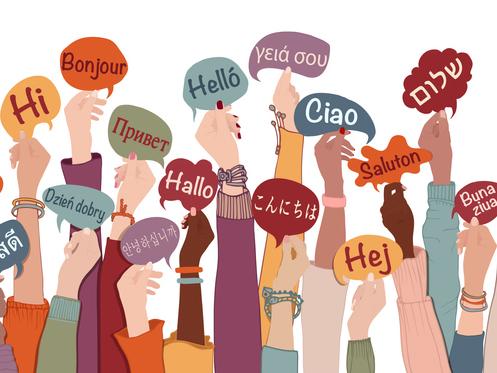As professionals supporting international students, we’re all aware that the landscape in which we operate has shifted significantly over the past two years, as we adapt to both a post-Covid world and changing immigration policy. Policy changes have influenced not only how students perceive their university experience but whether they choose to study in the UK at all. At the same time, we’ve seen changes in how students prefer to engage with us, as we all continue to navigate what the new normal looks like.
When designing and delivering support to international students, we all too often consider them as one single group. When asked how to solve an issue with international students, our first question is always “Which international students?” That said, there are some commonalities across our international student population: for example, our 2024 Welcome Survey showed that they were more likely to live off campus and less likely to attend alcohol-focused events.
- Four key hurdles international students face – and what to do about them
- How to support international students’ smooth transition to a new country
- Help students make the most of studying overseas at branch campuses and beyond
This highlights the need for more bespoke welcome activities – a programme that meets the needs of diverse international students without separating them from their peers.
Build belonging before they get here
Moving to a new country is life-changing. I’ve lived in four countries, and each move brought different challenges. Connecting with others before arrival can make a huge difference – and in today’s digital world, there are increasing opportunities to do that.
We already offered the usual ways to help students connect – pre-departure events and social media groups for halls, for example – but we lacked a secure space where students could build relationships in their own way. To tackle this, we recently adopted a peer-to-peer app that allows international offer holders to connect with other students based on course, location and interests.
This app is not a quick fix – a lot of time and effort has gone into its initial success. We’ve trained our student ambassadors to answer enquiries effectively, used our hall committees to connect students to their halls of residence within the app, and run focused sessions to develop and enrich this new online community. The work is still ongoing – we’re only in year one – but we’re already seeing students making connections, building friendships and exploring what the university has to offer before they’ve arrived on campus.
Building connections with the teams that will support new students is also vital. For the past two years, my team – alongside other support services including academic language support staff and careers advisers – have attended in-country pre-departure briefings. This has allowed us to connect with students across the world and deepen our understanding of the cultures of our students. As a result, we’ve seen increased engagement from students who met us at these sessions, and we’ve also seen indirect benefits when we can demonstrate first-hand knowledge of students’ home countries.
Focus on the whole community
Recently, we have worked extensively to review our welcome for international students and better help them feel part of our wider community.
Key to this has been tackling some of the misconceptions our existing community has about international students. We have a strong hall-based culture, and our hall committees deliver a significant portion of our welcome activities. Yet most of our international students choose to live off campus.
Over the past 12 months, we’ve worked closely with staff- and student-led groups to ensure our welcome is inclusive of everyone. This has not only supported integration of international students but of other groups that might not fit the stereotype of a typical student.
Evidence – for example, around alcohol consumption – has prompted our student committees to diversify their programmes, and we have also developed training to help them design more inclusive events.
This has resulted in a wider range of events in halls, with excellent attendance levels. Halls have also supported us to deliver early-arrival events to help international students feel at home from day one. The welcome period runs into the winter months, when students typically start to feel more homesick, so we have worked with societies to run our Brighter Winter programme, which focuses on daytime social events to help integrate and support international students.
Pivoting an institution to focus on non-typical students can be a challenge when resources and time are in short supply. My advice is to start small, make use of connections and collaborate wherever possible. This year, we launched a new collaborative project between our international student experience, student well-being and community warden teams and a local charitable well-being centre. This proved hugely successful, with some of our best-attended events held in the centre. It also allowed us to take an intersectional approach, supporting efforts to include commuter students.
Consider where your students live off-site and where potential partners – such as churches, charities and local governments – could support. They’re often keen to help, and may already be doing so. It also allows you to share resources, maximise impact and reach students who previously may not have accessed your support.
And it doesn’t have to be anything particularly big. We’ve found that making small changes can have a significant impact, helping to increase engagement and build stronger connections between different groups of students.
A warm and inclusive welcome is a key step in helping students feel that they belong. However, it’s important to connect welcome activities with those that take place before students arrive and those that happen after the welcome period ends. Our welcome events are just the beginning of a wider programme that continues throughout the academic year, including weekly activities, extensive vacation programmes and tailored careers support for international students.
When designing activities specifically for international students, focus on the common challenges they face and work in partnership with others to increase the reach and impact of your support.
Tim Hewes-Belton is international student experience manager at Loughborough University.
If you would like advice and insight from academics and university staff delivered direct to your inbox each week, sign up for the Campus newsletter.




comment